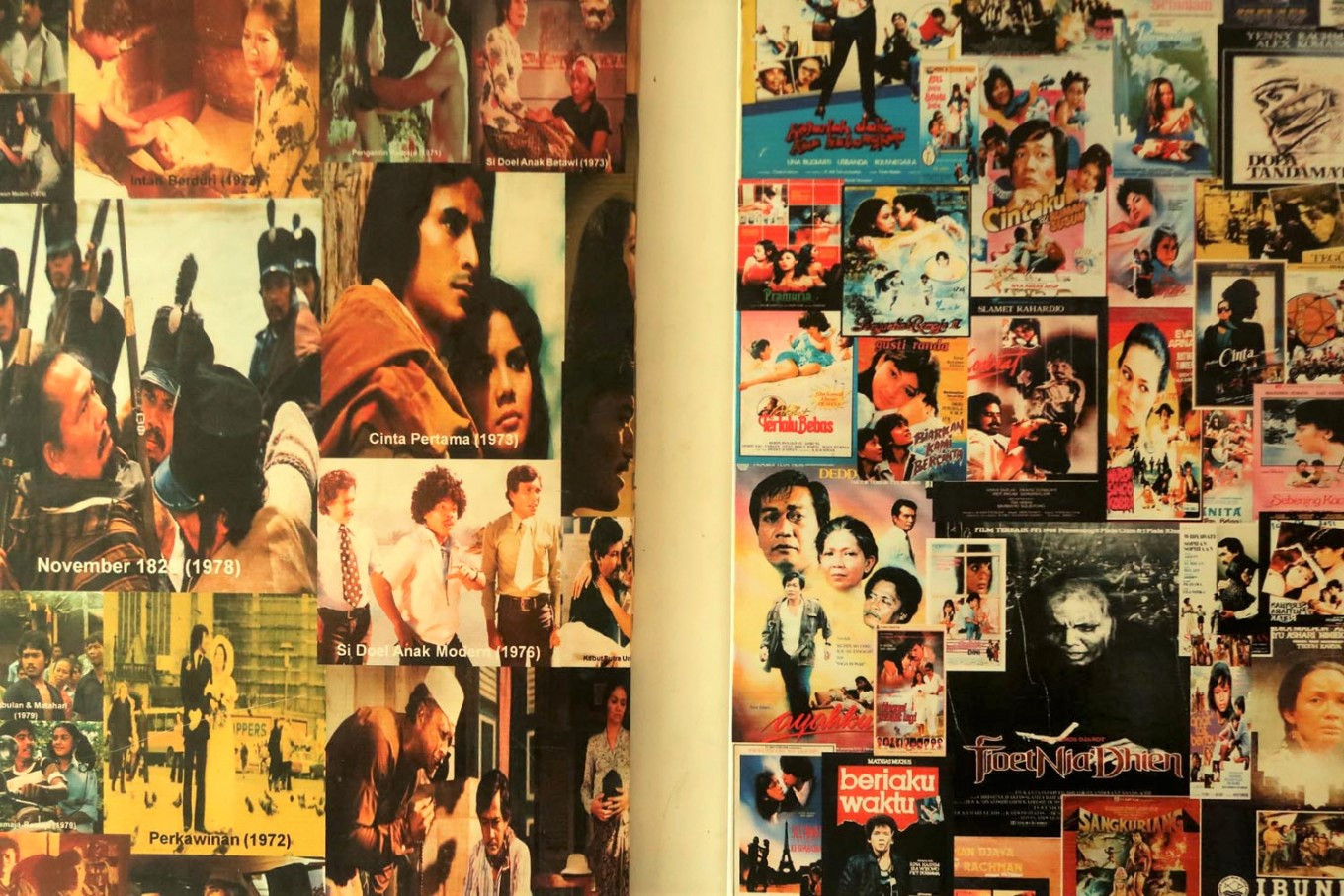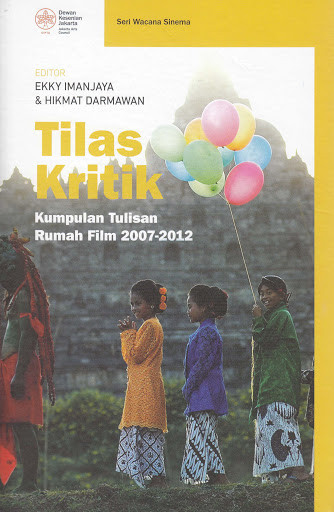Popular Reads
Top Results
Can't find what you're looking for?
View all search resultsPopular Reads
Top Results
Can't find what you're looking for?
View all search resultsBeyond good and bad: Art of film criticism, then and now
Movies, like anything else in life that involves personal preferences, can be difficult to judge.
Change text size
Gift Premium Articles
to Anyone
A
blockbuster movie can set a new record in ticket sales even as it is savagely roasted by critics or vice versa, winning critical praise left and right even as it bombs at the box office.
Film critics are an essential part of the movie industry, and their opinions are often influential in shaping audience perception. But with the rise of social media, everyone has an opinion these days and are keen to proclaim them loud and clear.
So where do film critics fit in today’s cinematic experience?
Former members of the now-defunct movie review website, Rumah Film, recently discussed the various aspects of film criticism and their relevancy today during an online seminar hosted by the Jakarta Arts Council.
Rumah Film, or “house of film”, was founded in 2007 with the primary aim to facilitate the need for film criticism in Indonesian cinema. The site also covered foreign titles as well as film festivals.
Until its demise in 2013, Rumah Film posted numerous thought-provoking reviews and pieces, most of which are archived in Tilas Kritik: Kumpulan Tulisan Rumah Film 2007-2012 (Review Criticism: Compilation of Rumah Film Writings 2007-2012).
More than 1,600 pages in length, the book is essentially a nostalgic chronicle of Indonesian releases over half a decade, from Laskar Pelangi (The Rainbow Troops) to reportage on the 2008 Cannes Film Festival.
Though Rumah Film has become an internet relic, many of its founding members have remained film critics.
Krisnadi Yuliawan Saptadi pointed out that Rumah Film was founded out of its members’ frustration at the contemporary film criticism published in the mainstream media of the time.
“To put it simply, we felt there was something missing, appreciation for the works of our friends in the film industry. We all got together and agreed that we should create something, a ‘house’ of sorts for proper appreciation of these works,” he said.
Asmayani Kusrini, who joined Rumah Film with a background in journalism, said she assumed critics were being “high and mighty” because of the nature of the works, though she later changed her thinking.
“After joining and meeting Ekky [Imanjaya], who joked around and watched films in a [down-to-earth] way, I realized that critics are not meant to tear down [movies], but rather see [them] from a different point of view,” she said.
“Sometimes when we watch a movie, something can give us pause. We explore or look at the possibilities why that pause is there, even though the film looks good.”
Ekky, who is currently a faculty member at Bina Nusantara University’s film program, likens a film review to a love letter, and that it is born out of a love for both film and writing.
“Love isn’t just like and dislike, other feelings like disappointment are also there, like how you expect a lot of a director who didn’t live up to that expectation, but expressed constructively,” he said.
Founding member and chairman of the Jakarta Arts Council’s Film Committee, Hikmat Darmawan, said that when he started writing for the Republika daily in 1996, he tried to take an approach that looked beyond the synopsis, which was then common practice.
“I felt that much film criticism was actually synopsis criticism, [the review] opening with a memorable scene before going into a summary of the plot, and then continuing with highlights on interesting tidbits about the film before closing with a judgment of ‘good’, ‘bad’, or ‘worth watching’,” he recalled. He said this was the general structure of the majority of film reviews at the time, barring a few outliers like film critic and filmmaker Joko Anwar.
Two decades later, Hikmat said this cut-and-paste formula still cropped up in film criticism today, ending with the simplistic verdict that the movie was either “good” or “bad”.
“It’s fine if you want to be a consumer guide kind of reviewer, and there’s nothing wrong with that. However, as a consumer guide, you have to be coherent and stand by your verdict, instead of praising everything just because you happen to know the filmmaker,” he added.
Another issue was the rise of “quotables”, which Hikmat used to describe the increasing proliferation of films based on best-selling books that were designed to be quoted.
“The reviewer will often become fixated on these quotes, so both the film and its reviews end up sounding cheesy, either [filled with] quotes or showing off trivia that can be Googled,” he said. “What value is there if it’s just raw data?”
Still, writing for a dedicated film journal was rather different, according to Ekky. He said that writing for Rumah Film carried a different pressure since it involved an editorial board, whereas blogs did not have an internal feedback system.
“If I send a piece to [a popular platform], there’s no real opposition, whereas in Rumah Film, the editing process can result in several back-and-forth that can help us grow, as we also learn,” he said.
As for objectivity in criticism, Hikmat said that while a critic’s objectivity could be up for debate, what was not OK was when the review became self-referential.
“It’s like saying ‘the movie was good’. What’s considered ‘good’? It’s very abstract and only the writer knows what it means. Instead, break it down into clear elements so others can judge for themselves,” he explained.
“We’re not interested in ‘good’ or ‘bad’ because they’re usually adjectives that are unscientific, merely feelings. We don’t feel, but know. That was our standard back in Rumah Film,” Hikmat said, adding that the internal feedback system was its core.
Seven years after Rumah Film closed down, Eric Sasono, who now dabbles in writing scripts as well as from film criticism, said he was content to keep Rumah Film as a memory, now that newer initiatives like Cinema Poetica had taken up the mantle.
“There is a phase where a life cycle comes to an end, and it’s OK. The book [Tilas Kritik] has become an important monument in recording the development of Indonesian cinema, that once upon a time there was a group of people who wanted to do something out of love,” he said. (ste)












